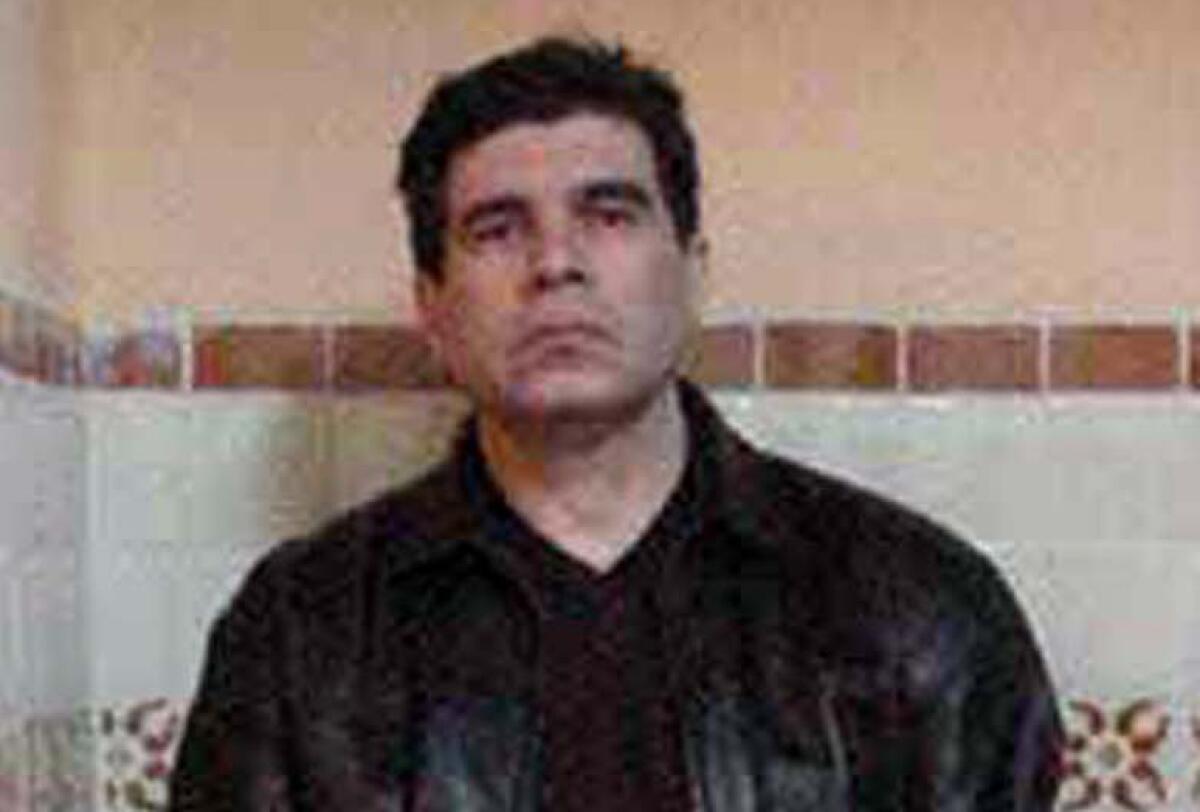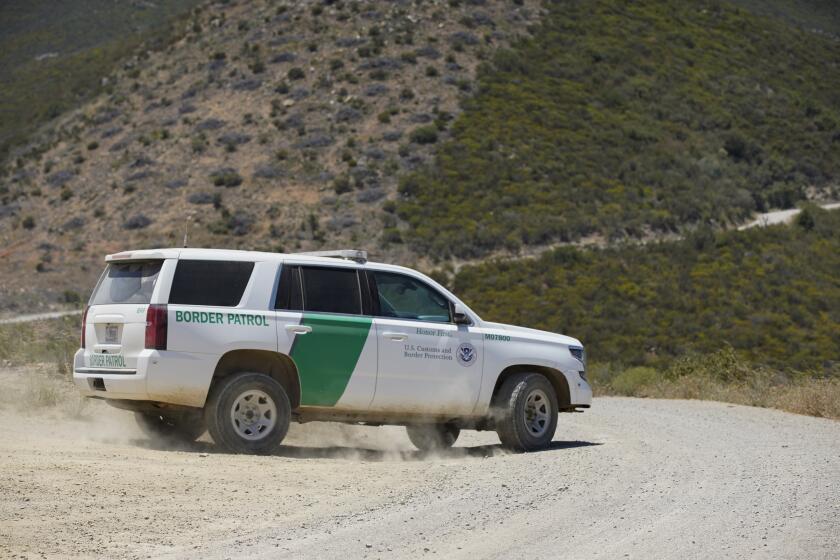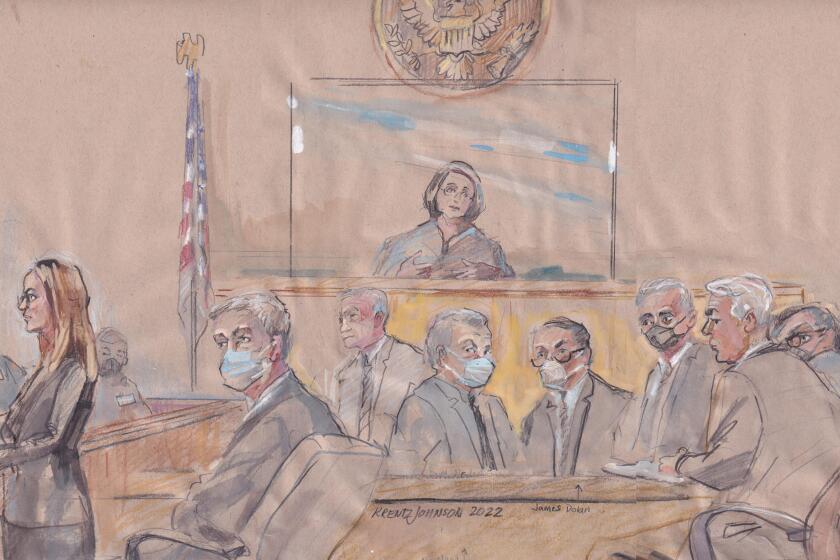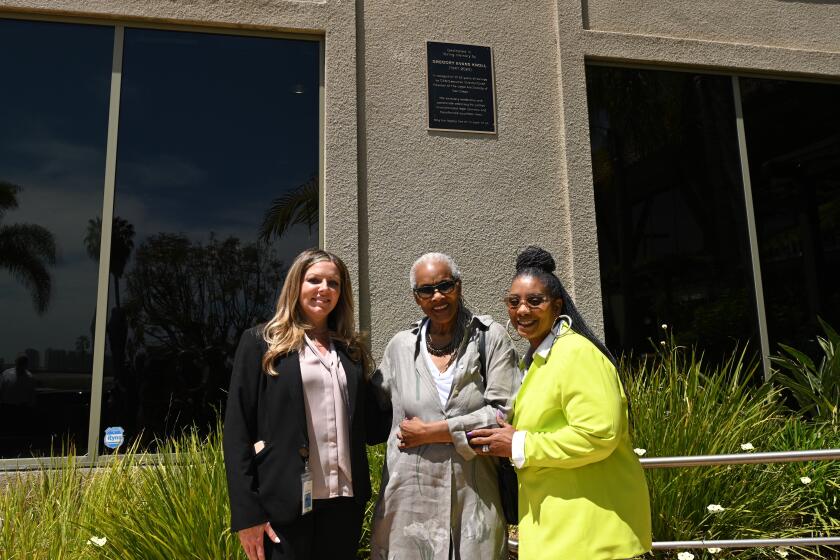‘Ruthless, vicious and inhumane’: San Diego judge denies Benjamín Arellano Félix early release

The former kingpin of Arellano Félix Organization, also known as the Tijuana cartel, petitioned last year for compassionate release after 11 years of 25-year term
When former Tijuana drug kingpin Benjamín Arellano Félix pleaded guilty to two crimes in San Diego federal court in 2012, he admitted as part of his plea that during a six-year period in the mid-1990s he “personally directed the murders of 10 people.”
During his sentencing hearing that same year, U.S. District Judge Larry Burns said he would have sentenced Arellano to life in prison if his plea deal had not capped his sentence at 25 years. Despite that, Arellano filed a motion last year seeking “compassionate release” from prison after serving just 11 years of his quarter-century term.
Burns on Tuesday denied Arellano’s request for an early release, writing in a 14-page order that the former leader of the Arellano Félix Organization, also known as the Tijuana cartel, must remain in prison until his sentence runs out in 2033.
“Arellano deserves the harsh punishment the Court imposed,” Burns wrote in his decision. “His offenses were vile and atrocious, displaying extreme cruelty, lack of conscience, and disregard for human life. And he continued this course of conduct over decades.”
Arellano’s rise to cartel kingpin, and his family’s control of the lucrative Tijuana smuggling corridor in the 1980s and 1990s, are part of narco lore. He and his three brothers were major traffickers of cocaine and marijuana, and later cheap methamphetamine, into the U.S.
While all four of the Arellano Félix brothers issued commands to others in the cartel, Benjamín was considered the group’s main leader from 1986 until his 2002 arrest in Mexico, according to court documents. He remained in Mexican custody until 2011 when he was extradited to San Diego and quickly pleaded guilty to racketeering and money-laundering charges.
The 69-year-old’s motion for a sentence reduction and early release filed last April remains sealed, but a 19-page response from federal prosecutors and Burns’ ruling on Tuesday provided insight into his reasoning. Arellano argued he should be given credit for previous time served in Mexican custody; that the COVID-19 pandemic combined with his health issues created “an extraordinary and compelling reason” to reduce his sentence; and that he has been rehabilitated.
Burns’ decision addressed each of those arguments, laying out the legal reasons that each one failed on its own. For example, federal law does not allow time served for a criminal sentence in a foreign country to count toward a federal prison sentence in the U.S., Burns wrote. And the judge said that while the COVID-19 argument may have been stronger in 2020 or 2021, it’s now a much weaker argument as the pandemic “is currently being well managed by vaccines, medications, and the increased prevalence of natural immunities.”
But Burns wrote that even if those arguments did have merit, he would have denied Arellano’s petition based on the nature and circumstances of his crimes, and Arellano’s history and characteristics.
“As the leader of the (Arellano Félix Organization) for over two decades, Arellano oversaw a vast and profitable drug trafficking organization whose members engaged in torture, abduction, and murder,” Burns wrote. “His leadership was ruthless, vicious, and inhumane.”
Citing news articles and a pre-sentence report, Burns said the Arellano Félix Organization was one of Mexico’s “biggest and most violent criminal groups,” and that Arellano controlled its structure and appointed lieutenants who oversaw operations that included “kidnappings, torture and murders of suspected informants and potential witnesses ... on both sides of the international border.”
In the years since authorities dismantled the Arellano Félix Organization’s leadership, new groups have filled the power vacuum left in the lucrative Tijuana smuggling corridor, including the Sinaloa cartel and the Cártel Jalisco Nueva Generación.
But the judge pointed to a 2021 report by the University of San Diego’s Justice in Mexico program that found remnants of the Arellano Félix Organization “could be regaining relevance” in Baja California.
“The prospect of Arellano reconnecting with remnant associates of the violent drug organization he controlled for two decades and attempting to resurrect the organization is not out of the question,” Burns wrote. “Inhibiting that prospect by requiring him to complete his original sentence advances the goals of specific deterrence and protection of the public.”
Arellano is serving his sentence at a high-security federal prison in Lee County, Va., and is scheduled to be released in April 2033. Once he’s released, he is expected to be deported to Mexico, where Burns wrote that he’ll likely have to serve more time to satisfy a previous Mexican prison sentence.
The latest news, as soon as it breaks.
Get our email alerts straight to your inbox.
You may occasionally receive promotional content from the San Diego Union-Tribune.







